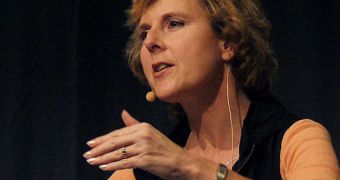Amid fears and outrage that the Danish government, the host of this year's UN climate talks, is seeking to sideline discussions on more emission cuts under the 1997 Kyoto Protocol, the G77-China Bloc has decided to withdraw its cooperation in the matter. The Bloc represents more than 130 countries, including developed ones such as South Korea, and the the poorest on the globe, the African nations. When environmental activists learned of the decision, they started chanting, “We stand with Africa – Kyoto targets now,” in support of the Bloc, the BBC News reports.
The organization that withdrew its cooperation is the voice of a large number of developing countries at the 2009 UN Climate Summit COP 15. Even though expectations were high of this meeting, it would appear that the same type of bickering as last year is taking place. The 2008 meeting, which took place in Poznan, Poland, ended with little to no tangible successes, and the countries involved failed to sign a draft of the agreement that was to replace the Kyoto Protocol. The latter document expires in 2012 and nations need to have a replacement by that time.
The main difference between developed and developing nations is the fact that developing nations want to continue to reduce emissions under an extended Protocol, whereas the developed world is pushing for the creation of an entirely new one, to replace the existing document. The G77-China Bloc fears that this would lead to them losing all the advantages they gained over the years since the first agreement was signed in Japan.
The Bloc also rightfully argues that the Kyoto Protocol is the only existing, international, legally binding agreement that has actually limited greenhouse-gas (GHG) emissions. It already contains functioning mechanisms, which could be further used to facilitate cuts. What they're basically saying is that there is no need to go through the same trouble of setting similar bodies up again, when the existing ones are functioning and can be readily used.
“It has become clear that the Danish presidency – in the most undemocratic fashion – is advancing the interests of the developed countries at the expense of the balance of obligations between developed and developing countries. The mistake they are doing now has reached levels that cannot be acceptable from a president who is supposed to be acting and shepherding the process on behalf of all parties,” Lumumba Di-Aping, who is the chief negotiator for the Bloc, says. He has been speaking for the BBC Radio 4's The World at One program.

 14 DAY TRIAL //
14 DAY TRIAL //